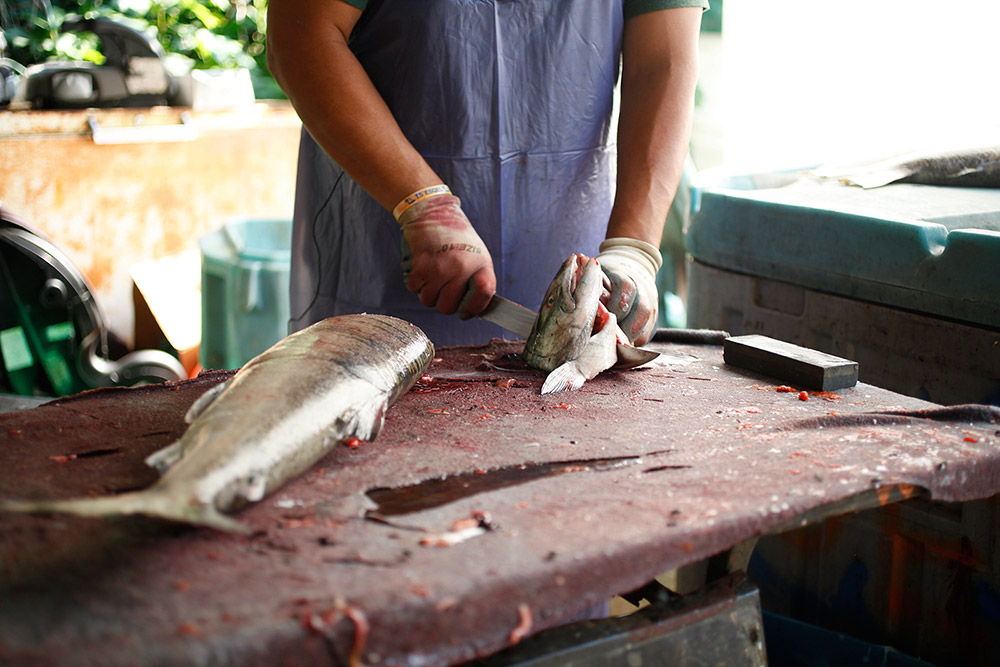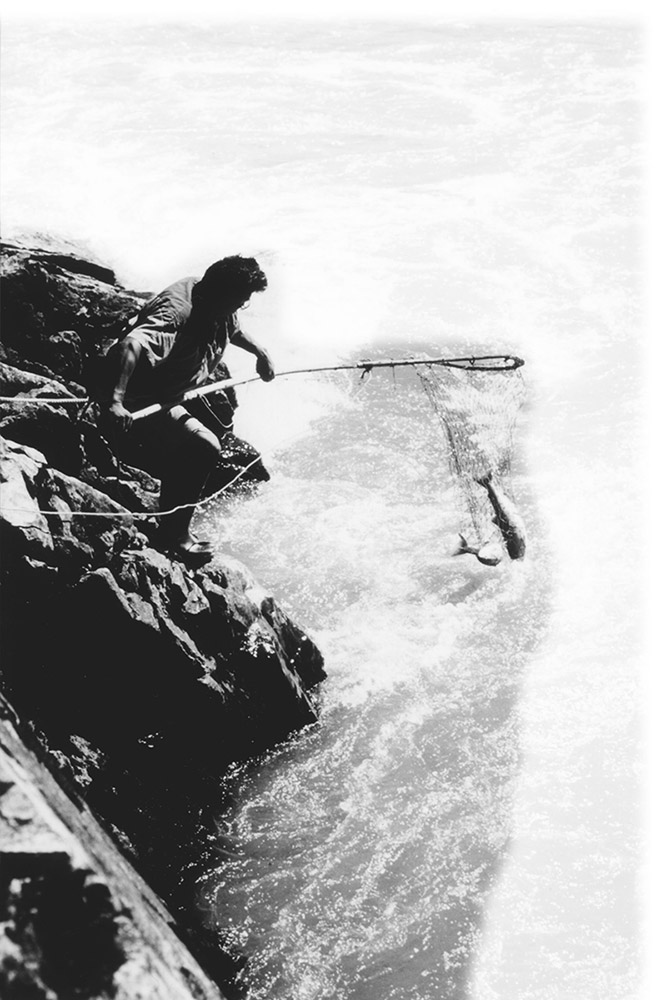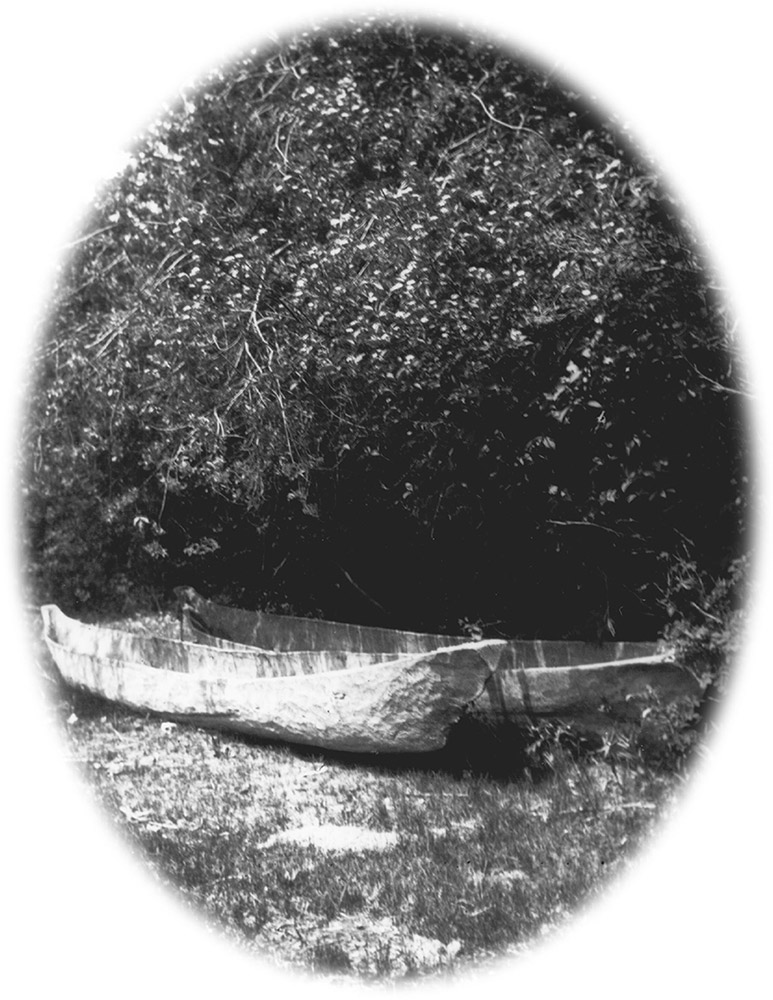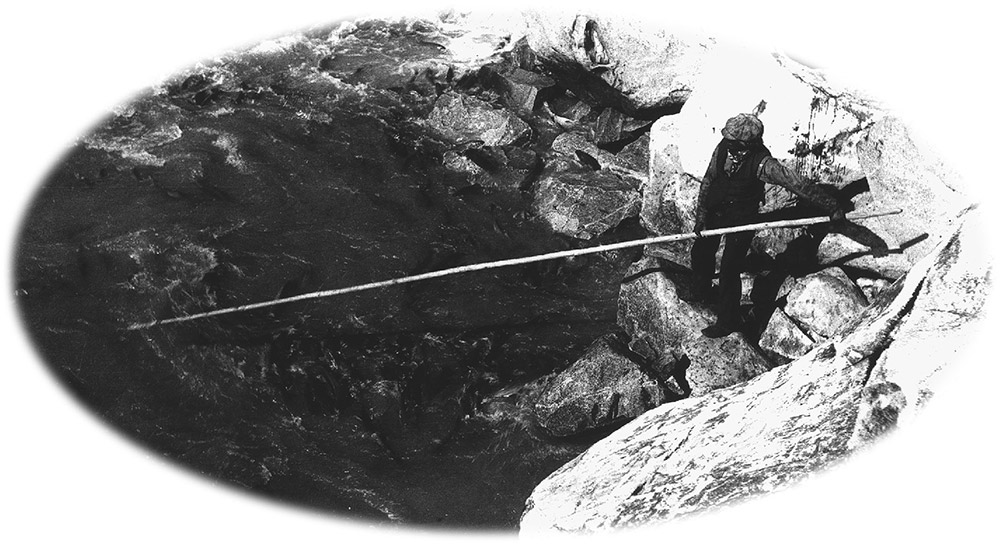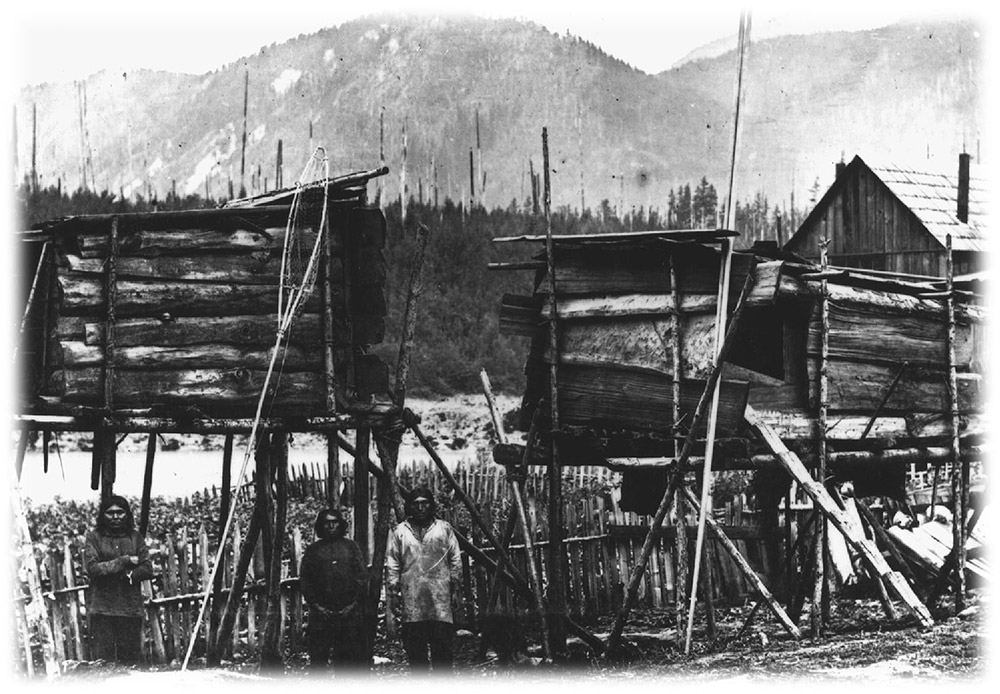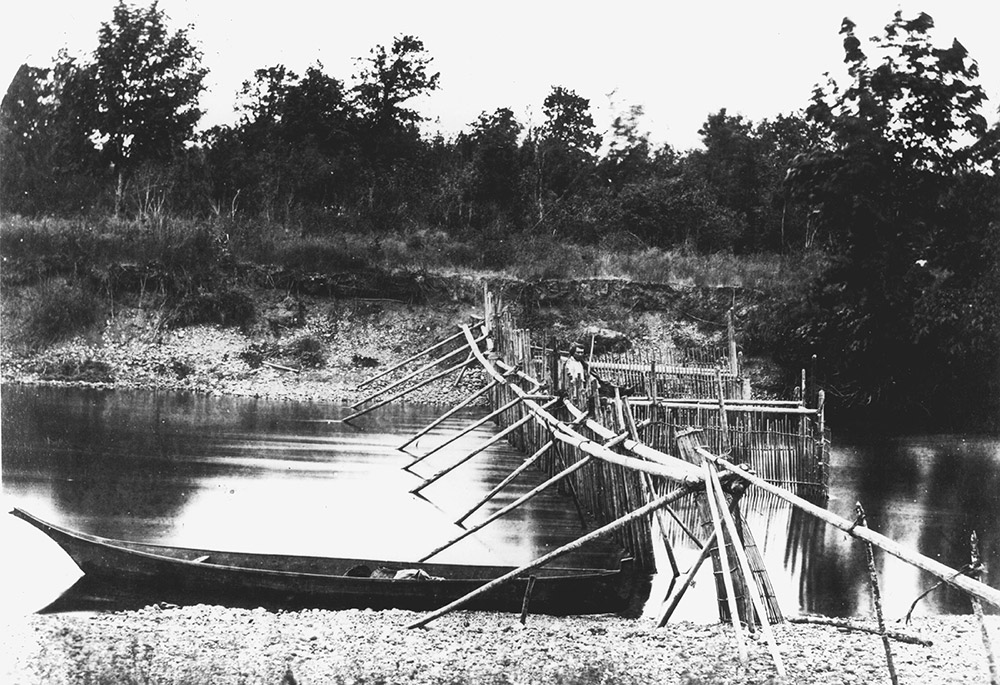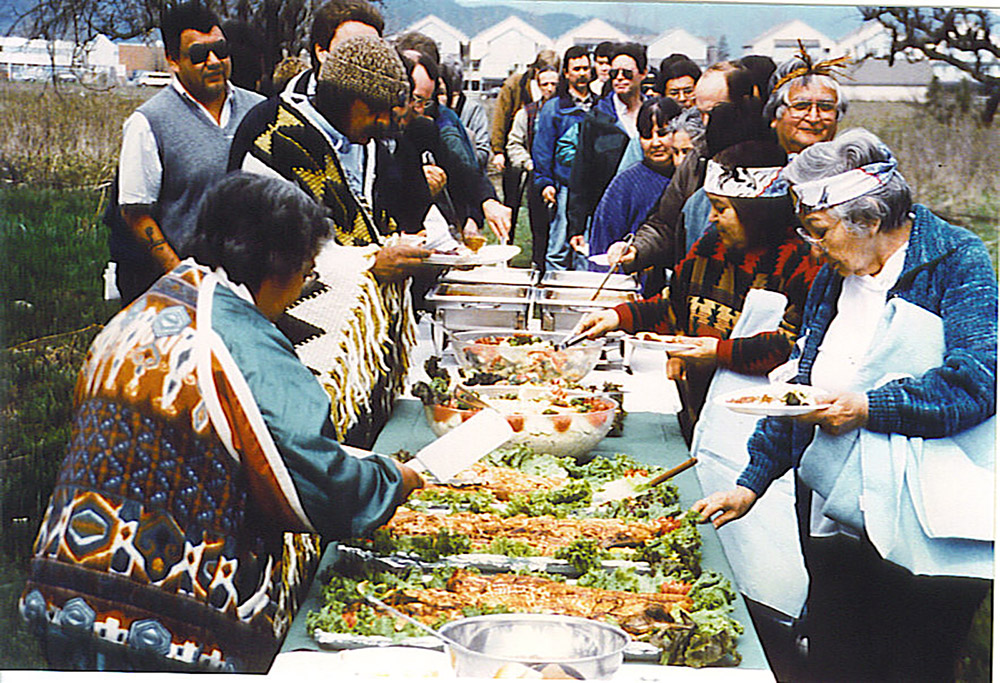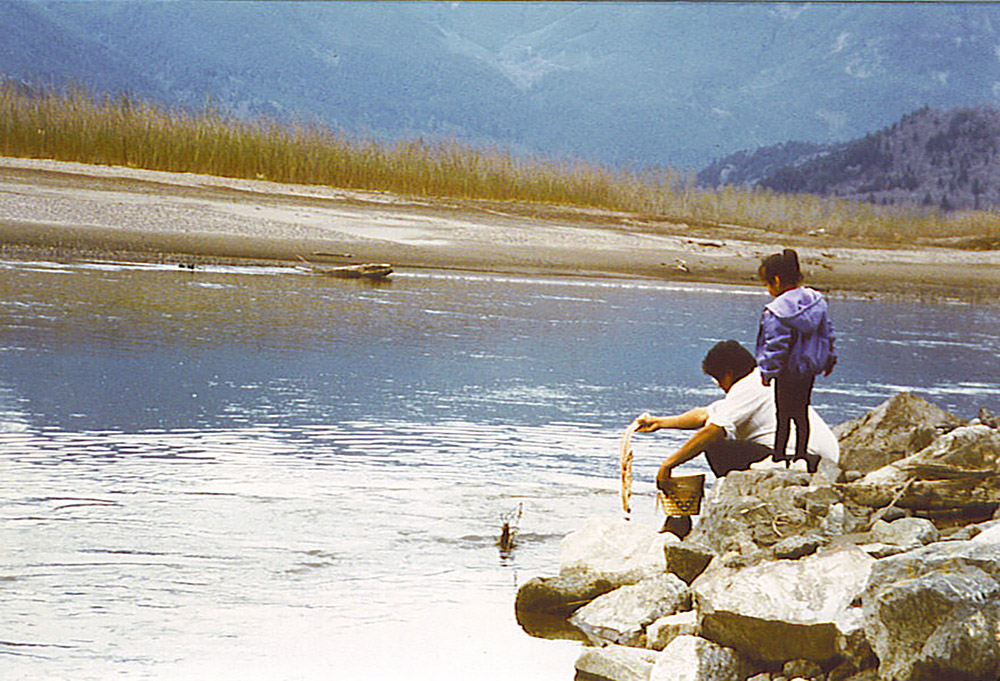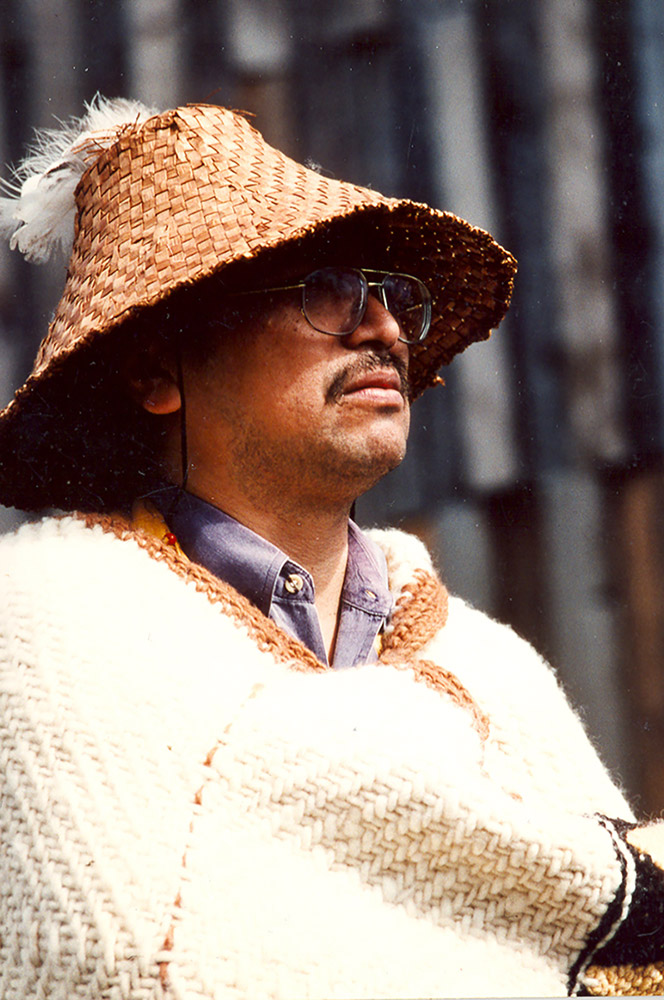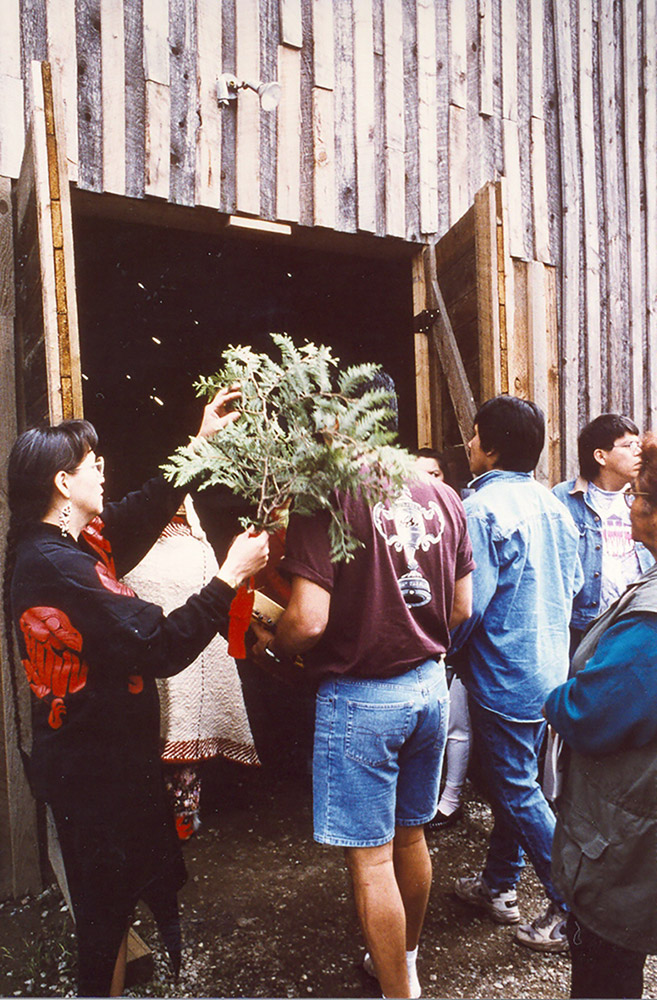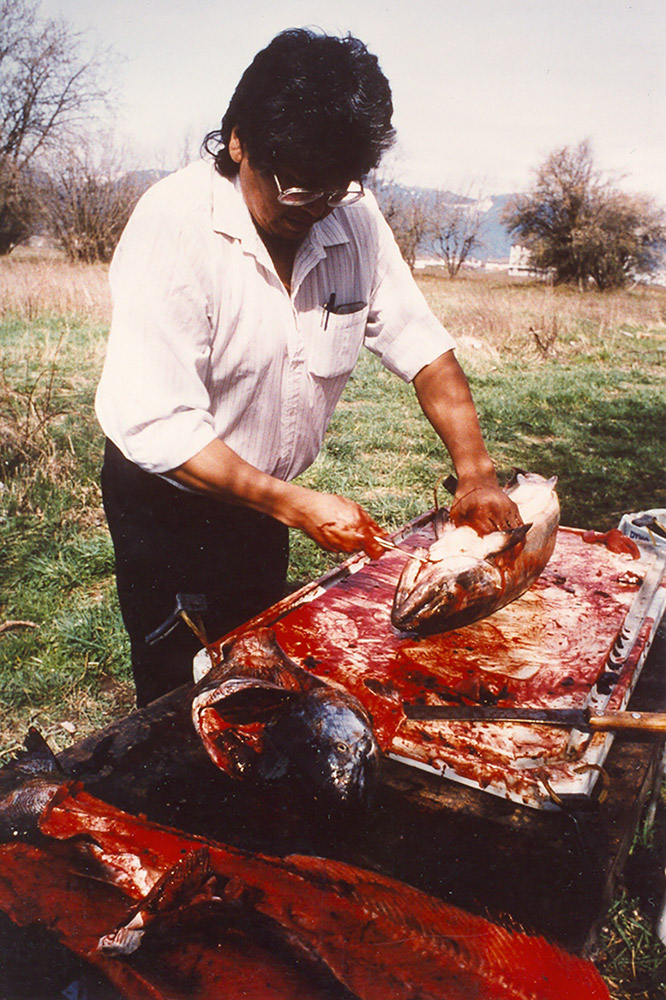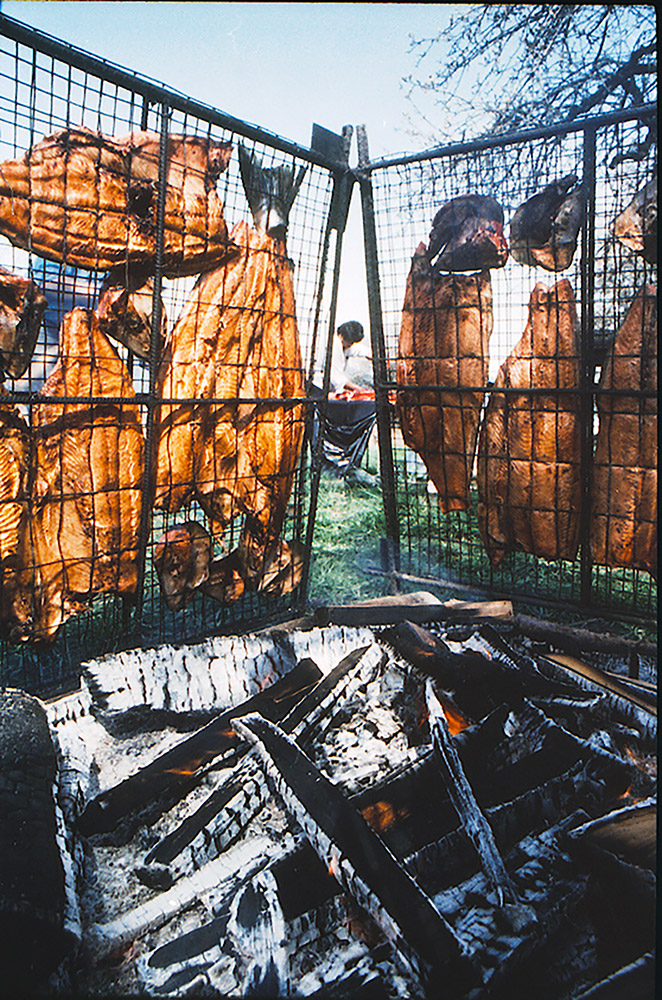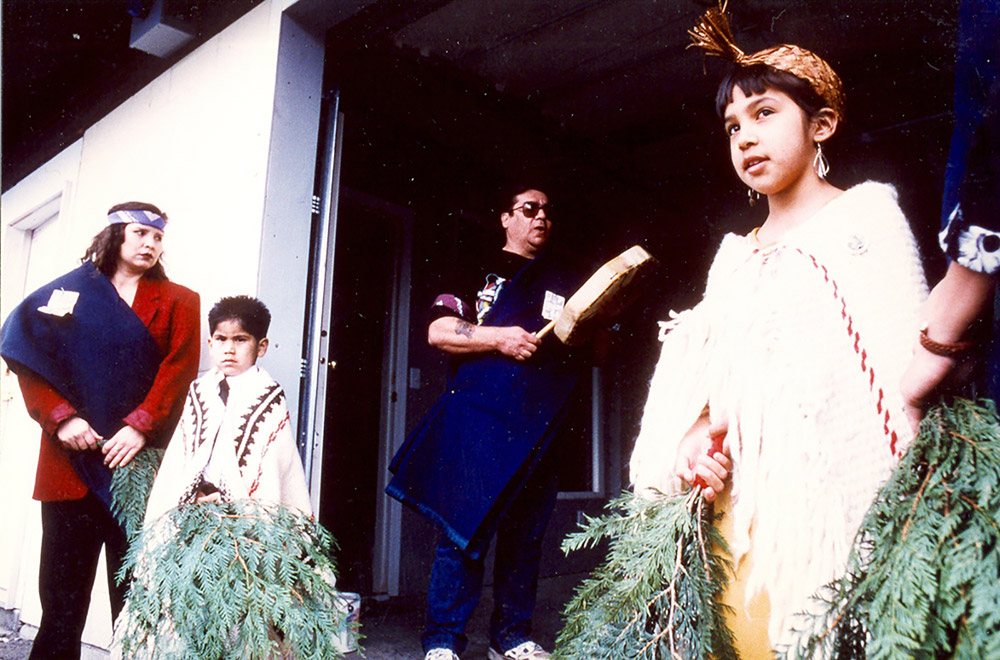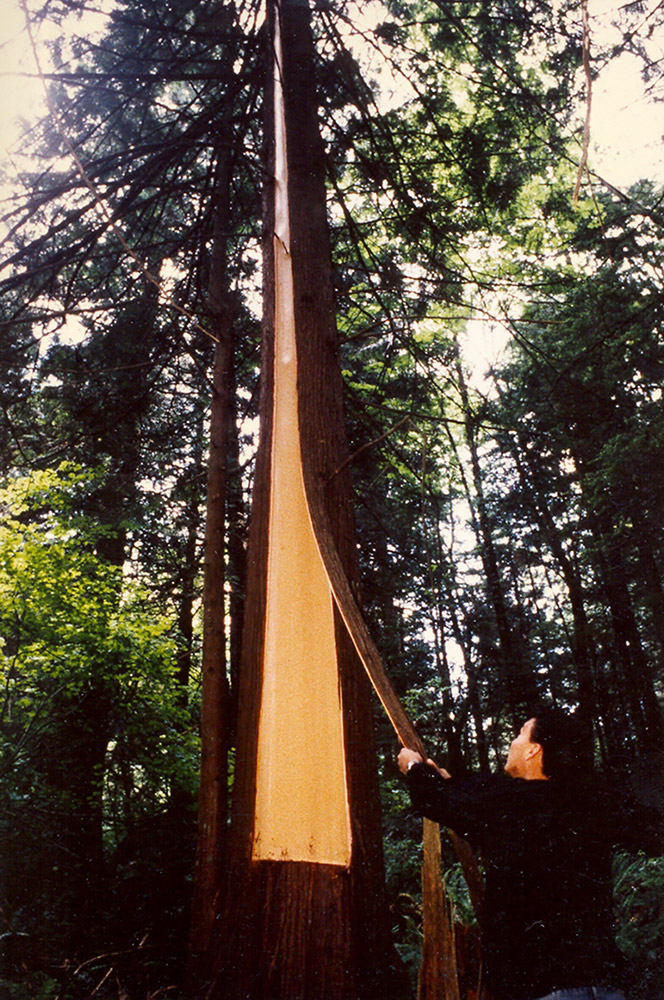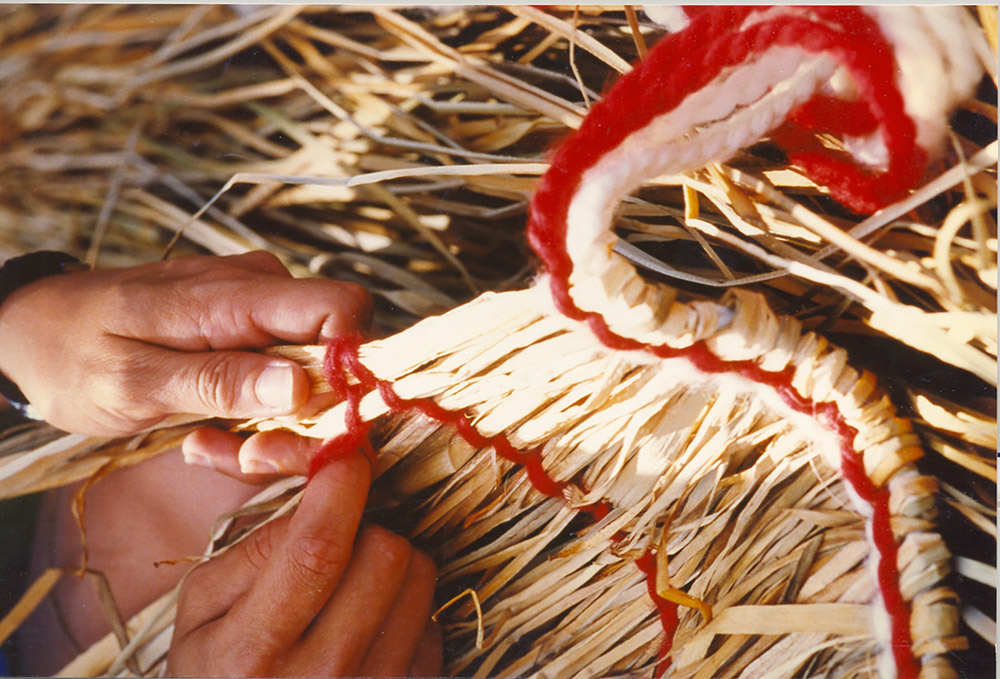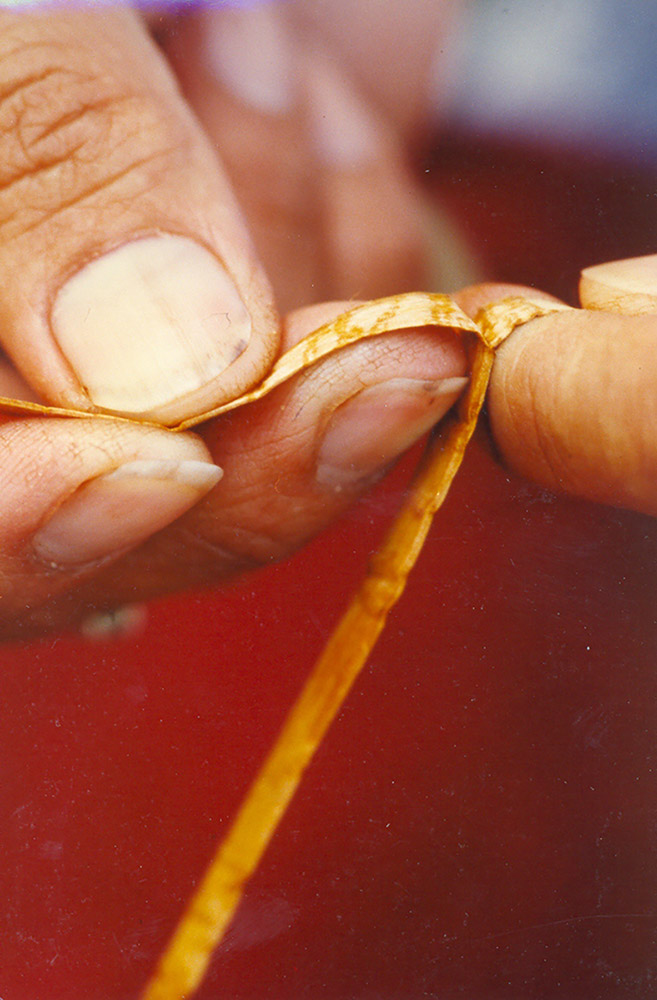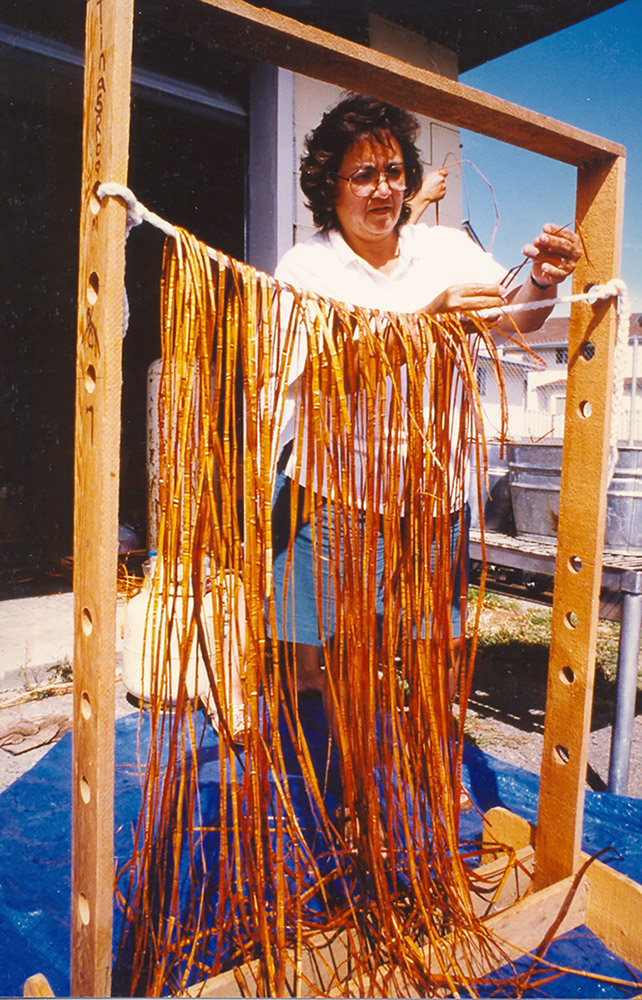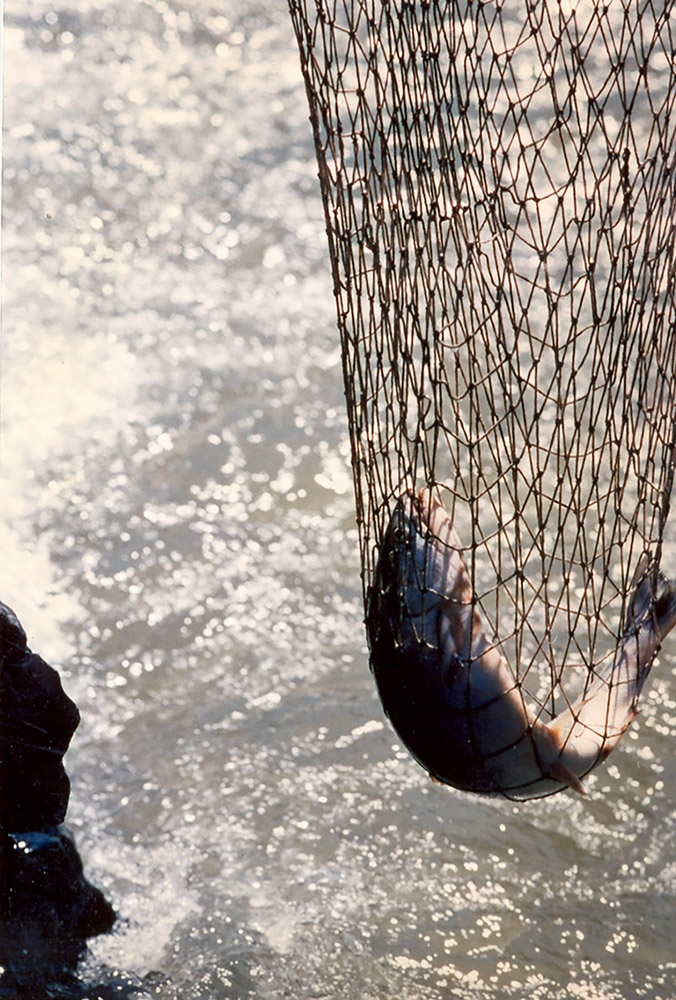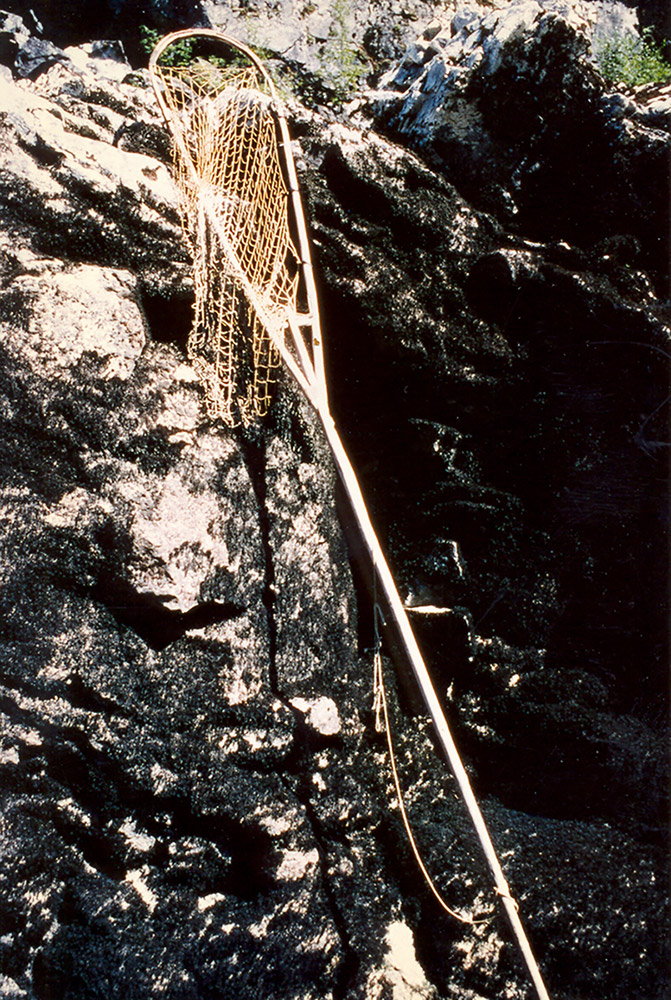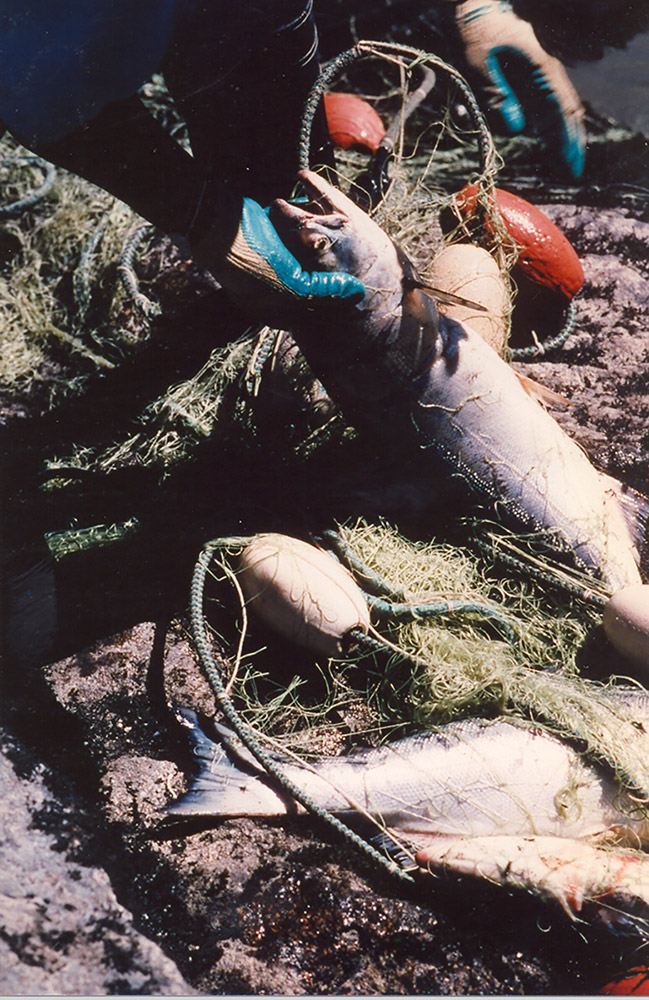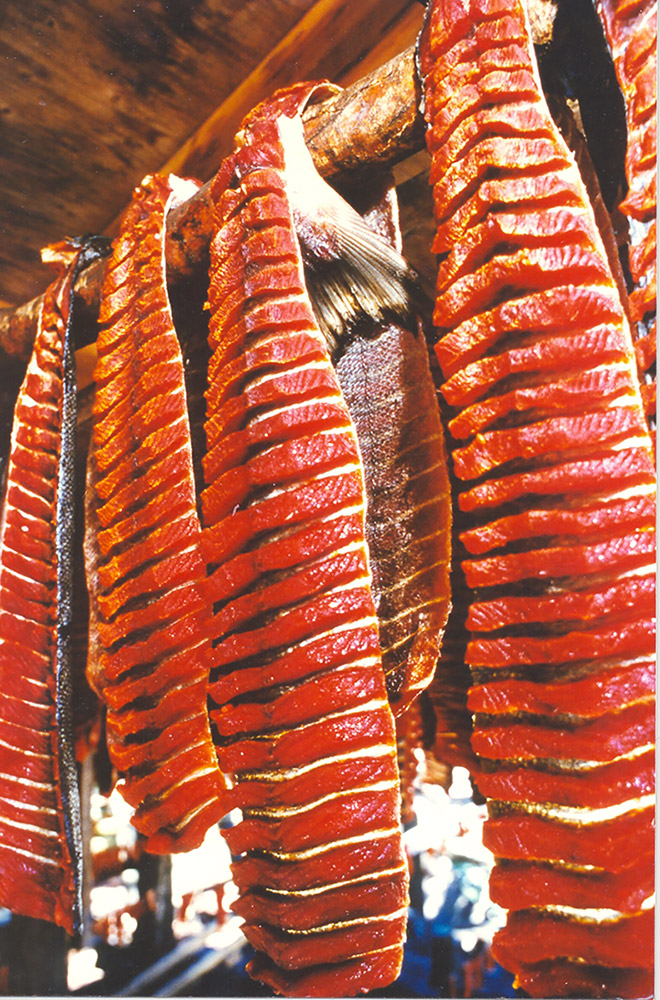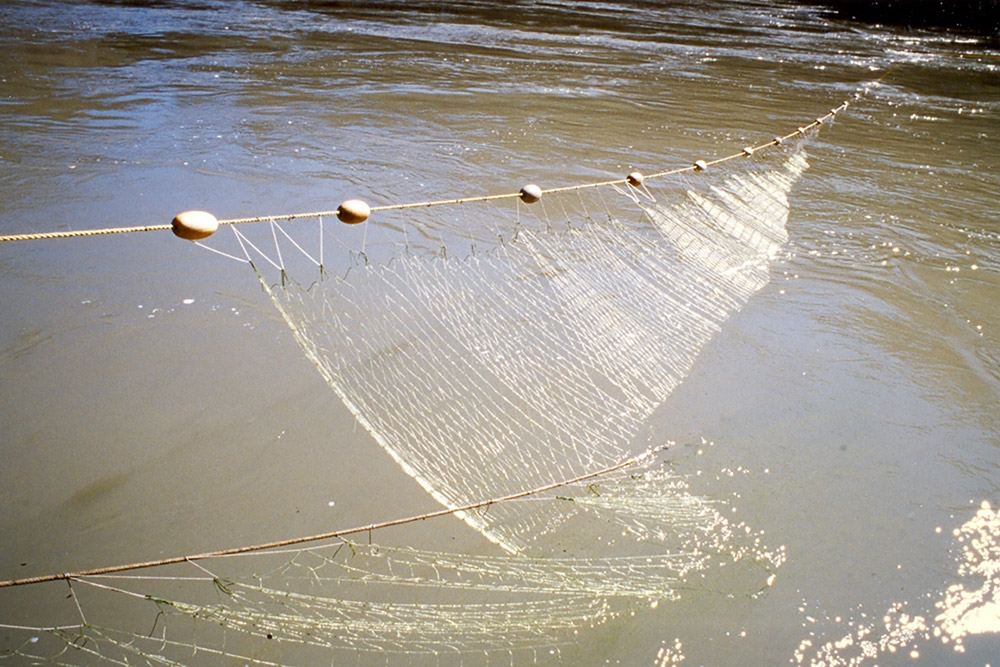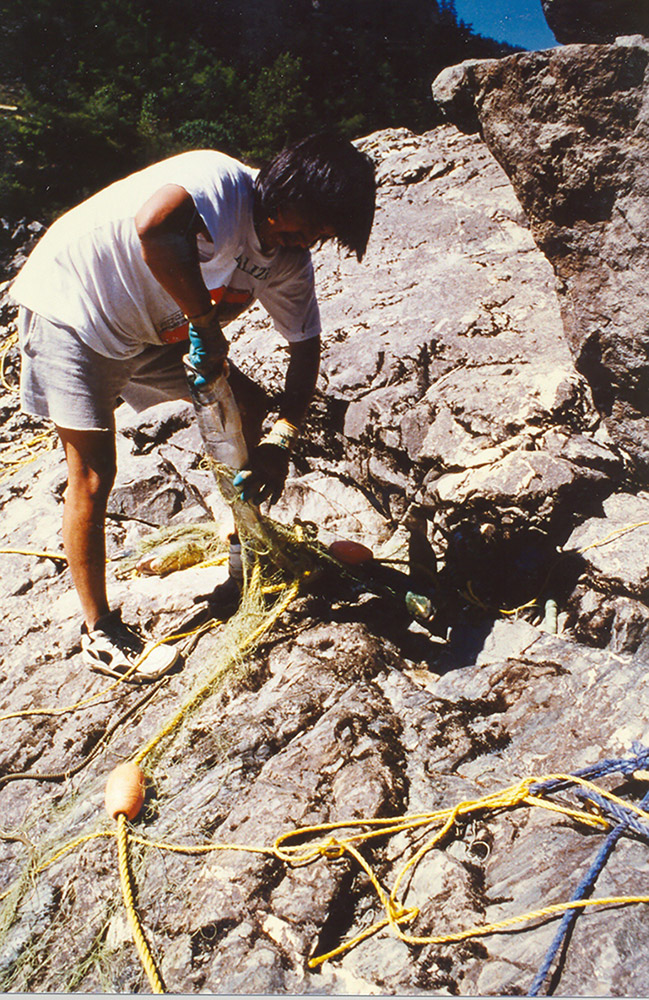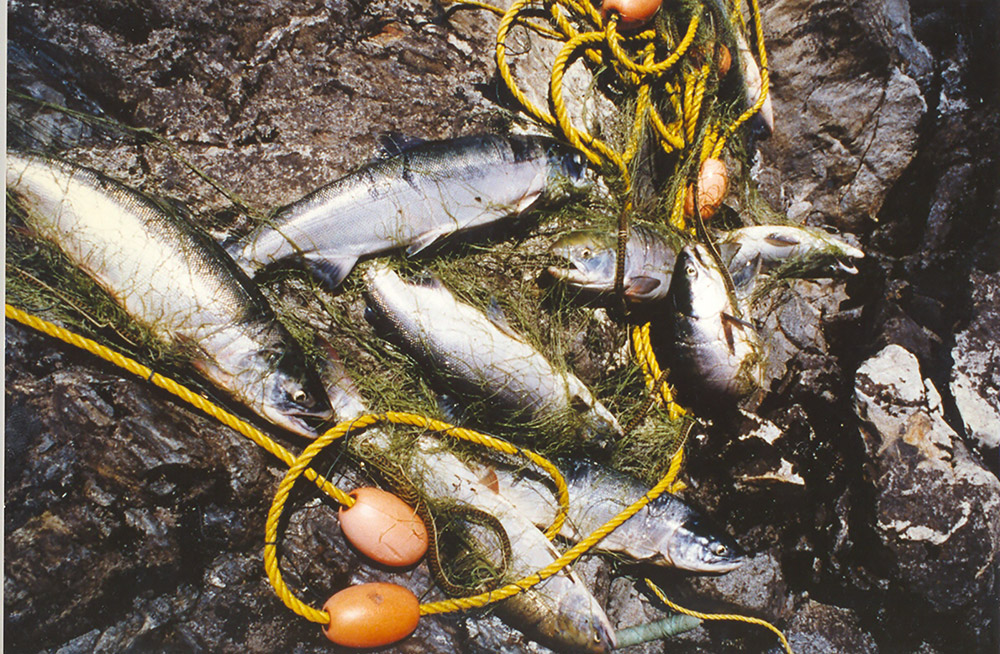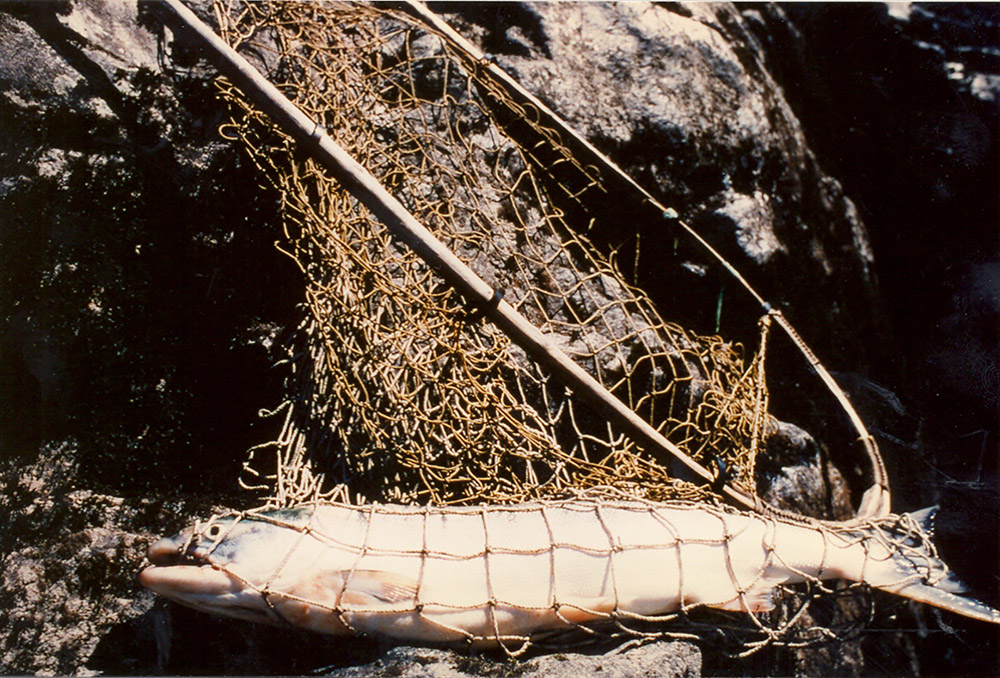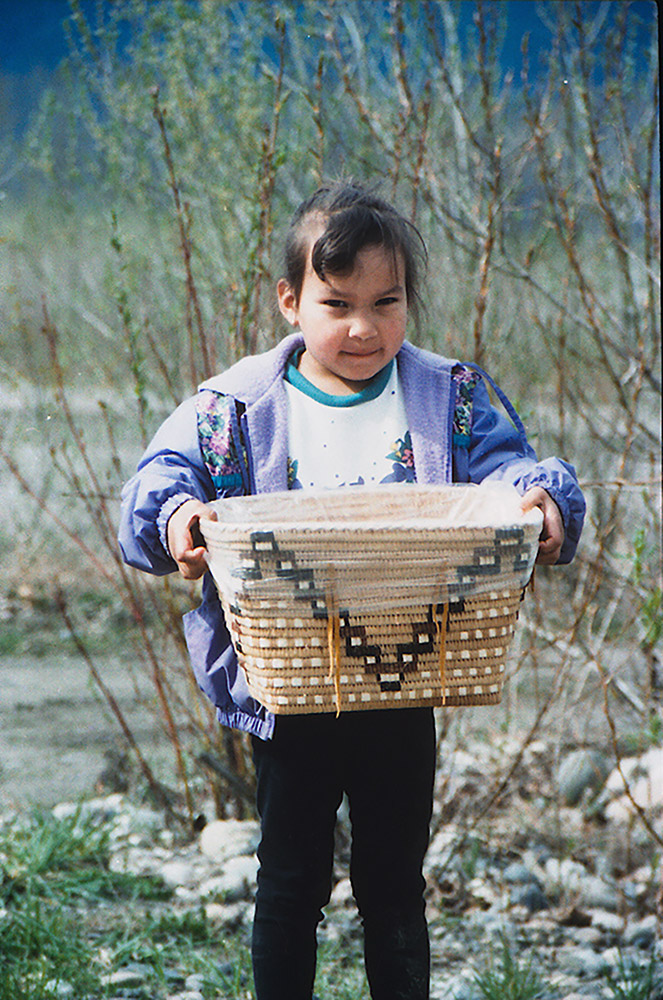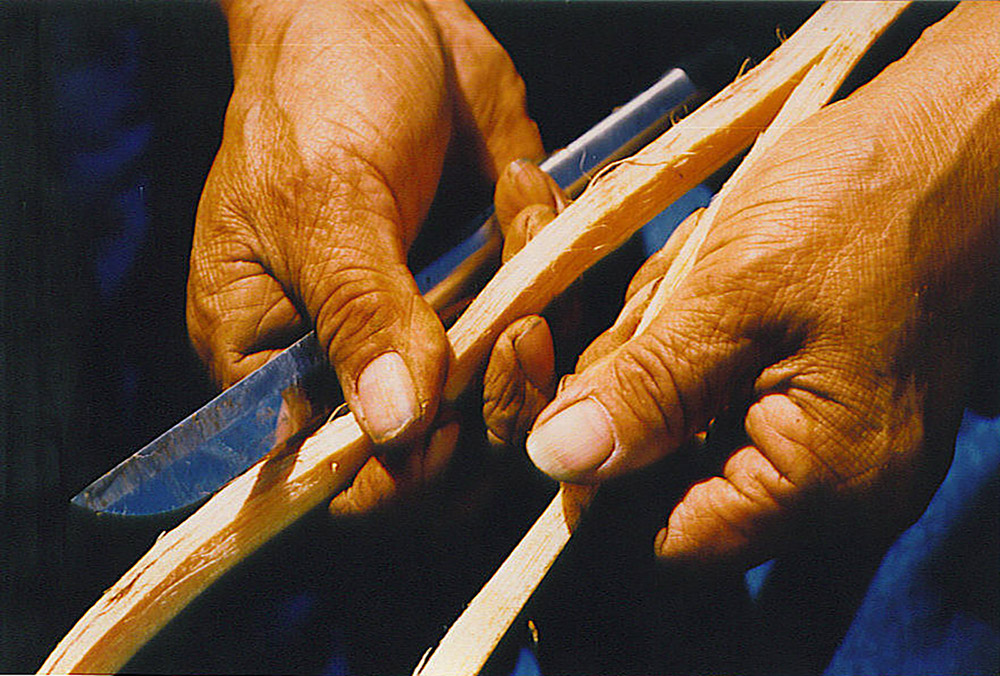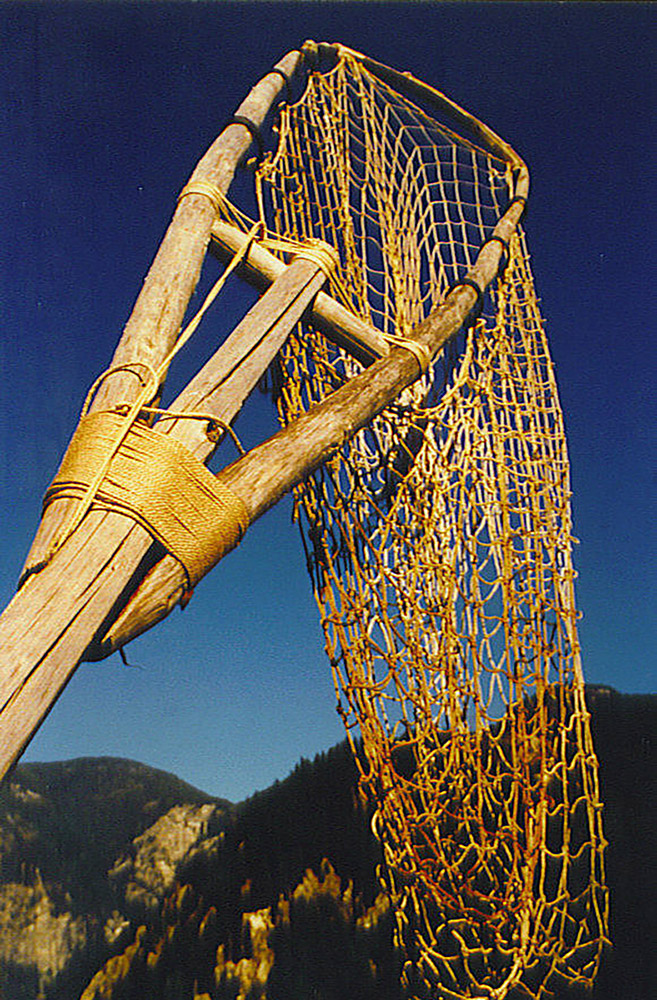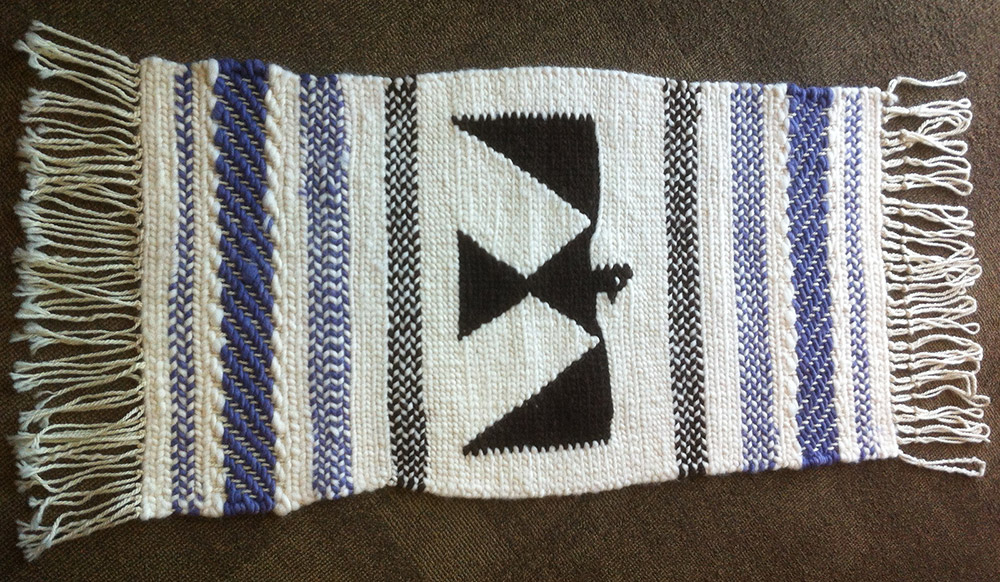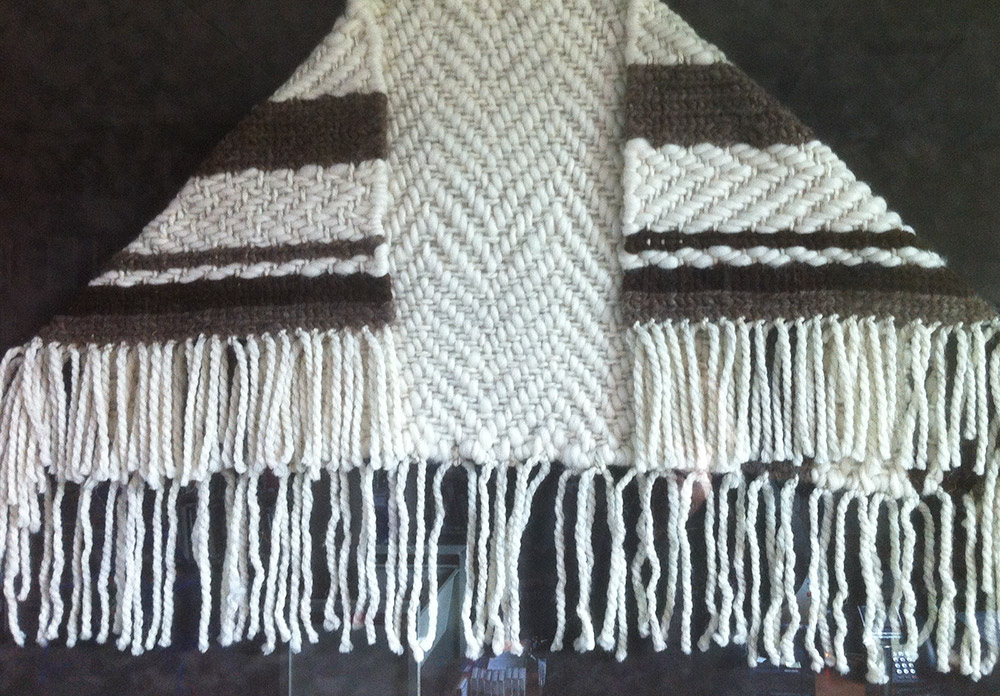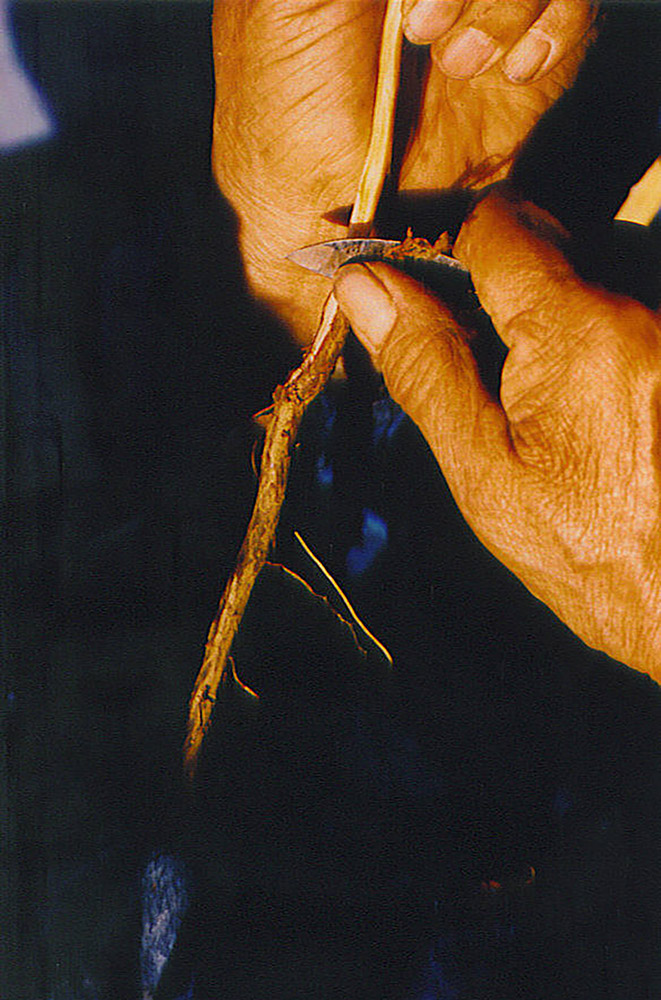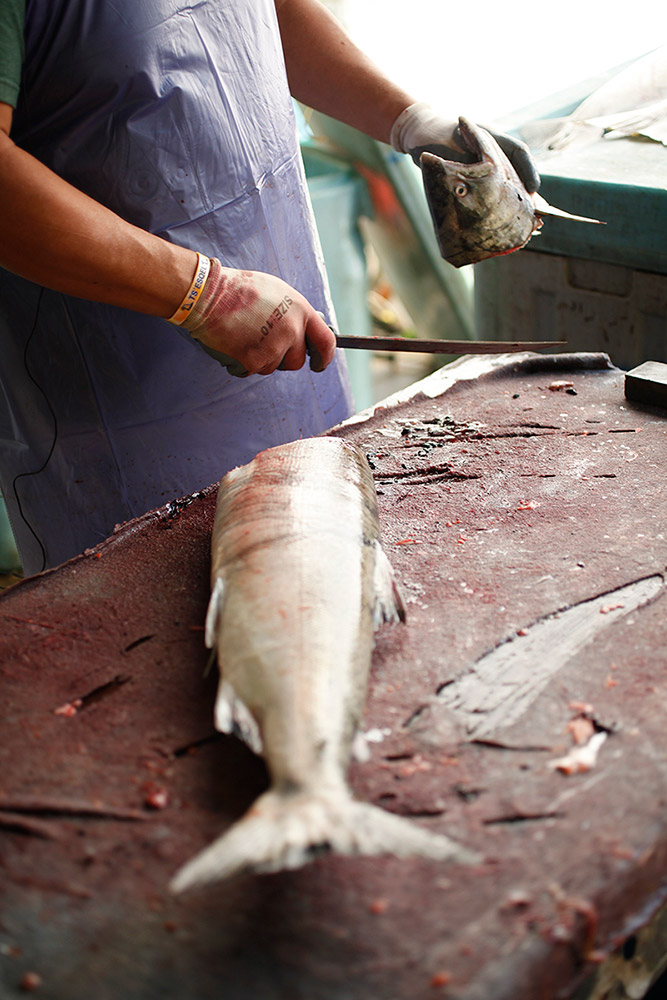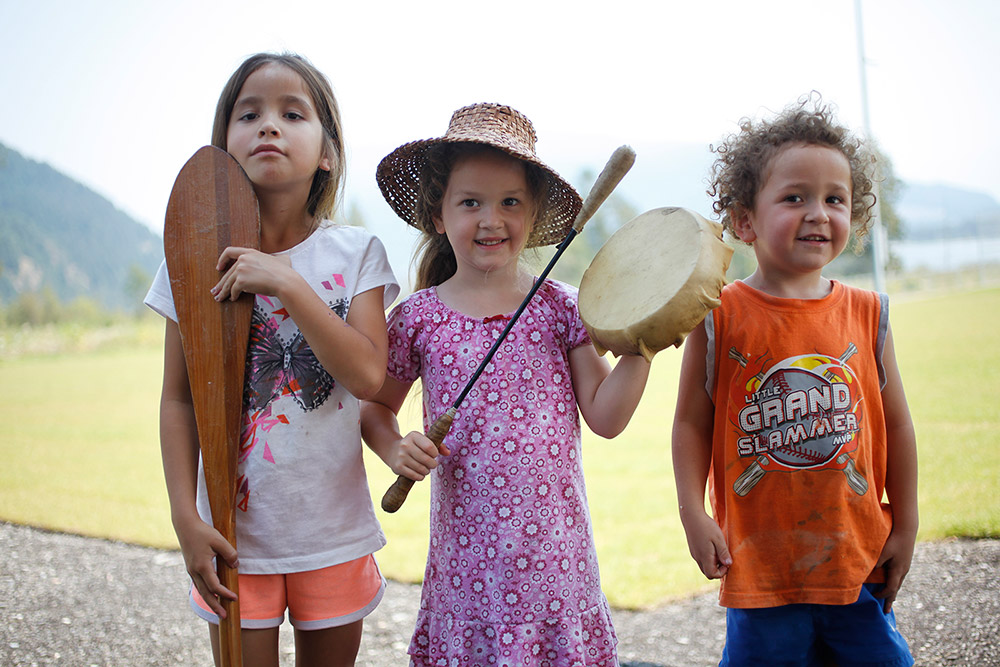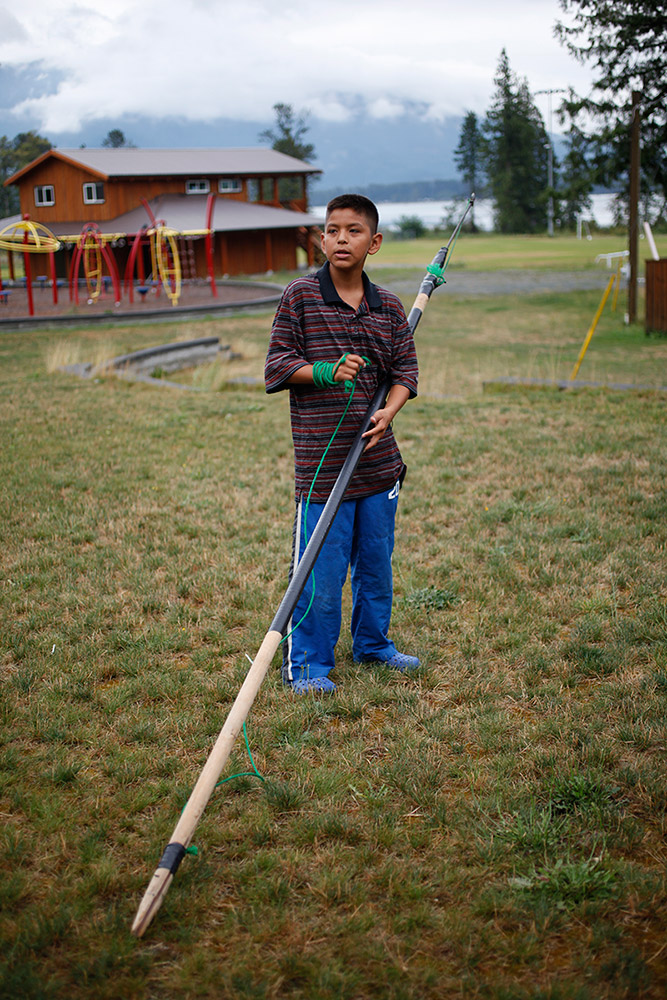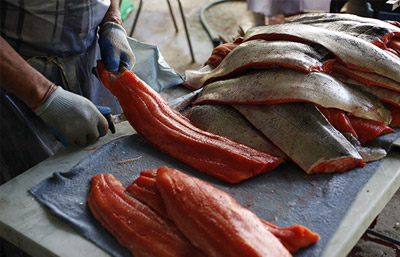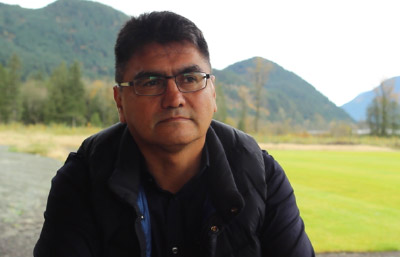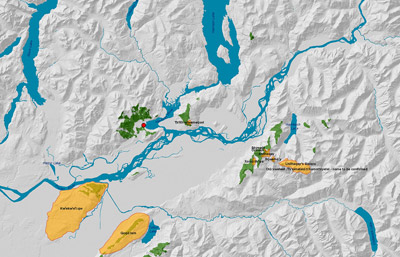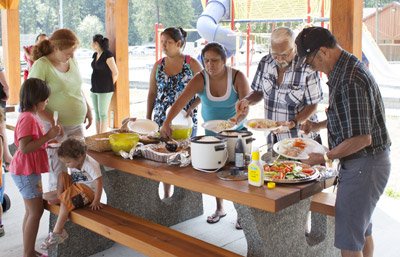[child singing in Halkomelem]
[Gwen Point tells the story of Th’owexeya, the Cannibal Woman, to a group of Scowlitz children and family members, gathered at the Scowlitz Band Hall.]
Well first, thank you for being invited. I was saying earlier that I grew up here, when I was your age. My mother’s from here, and her mother’s from here, and her mother was from here as well. So, when I was a little girl, I’d get to come here and stay with my great-grandparents at that time. Then, when I was older, like you, I could swim in this lake here. And it was fun. Then again when I was older, I would come back home and I’d get to canoe pull in the lake as well. And that was lots of fun. I’m glad you canoe pull. I love that - I was here for your races. Yeah, it was fun.
But I’m going to share a story with you. A story that I grew up with, and you probably heard it already, but I really want you to hear it one more time if you’ve already heard it, okay. And the story is about Th'ōxwiya. Did you hear about Th'ōxwiya? Yeah, some of you have. Th'ōxwiya, she was a cannibal woman. And she liked to eat little children. So one day, anyway my grandmother told me this story, and I learned it right from when I was your age. And when I got older, I started telling this story.
Anyway, Th'ōxwiya would steal little children. And my grandmother said, when it gets dark, and the sun starts going down the mountain, you make sure you’re inside. Otherwise, Th'ōxwiya is going to come and get you. And Th'ōxwiya was an old lady. She was really old, but she was like magic, and she could move fast. Anyway, all the children went swimming. And they went in the water, and they came out of the water. And they went in the water and out of the water, just all day they were swimming. And it was hot, it was really hot. Then… then, they got tired. They all had a little bit something to eat. But you know when you’re swimming all day you get really hungry, and then after you eat, you get tired?
So they started to lay on hot rocks. And it didn’t seem like very long, and the oldest boy he went to sleep, everybody went to sleep. And the oldest boy, anyway, he woke up. And when he looked around, he had this scared feeling. And when he looked around and he looked up at the mountains, he could see Th'ōxwiya coming. Then he really got scared. And he jumped up and he started to wake up the little children. He ran around shaking everybody. And the older ones, they sat up and they’d seen Th'ōxwiya, and they were so scared they couldn’t move. But all the little children, he couldn’t wake them up; and they stayed sleeping.
Well you know, that little boy, he could’ve ran away. And saved himself. Right? But if you’re the oldest one, there’s a teaching that you’re responsible for everybody else. So if you’re the oldest one, you have to look after all the other ones. So instead of running away, he stayed. To try to help them escape.
Th'ōxwiya was old, but she could move fast. It didn’t even seem like it took her very long, and she went over and she started to throw the children in a basket on her back. And all the children were scared, and the little ones woke up and started crying, and they were so afraid. Well Th'ōxwiya turned around and she started to go back up the mountains. And the kids in the basket were crying, and they were cramped. And it was dark.
But the one at the bottom of the basket was a little boy. And when he went into the basket, he was holding on to a clamshell. And he thought, ‘How can we escape?’So he thought, ‘Well, I could make a hole in the basket’. So he started to scrape the bottom of the basket. And he scraped, and he scraped, and he scraped. And he was so tired. He was just about ready to give up and he BOOM, he fell out of the basket. But if you’ve ever been in the mountains, you know that it’s dark because of the trees - even on a sunny day. And Th'ōxwiya, in the dark, she can’t see down here because she was blind. She could see here, but she couldn’t see here. And when the boy fell out, he made a big noise. And she turned around, xwémxwem xwá:y tha, what’s that noise? But she got scared.
And she started going faster up the mountain, and that little boy just crouched down behind her. And as soon as Th'ōxwiya started going fast, he jumped up and ran down the hill. Then, the next child fell, THUNK real loud. And Th'ōxwiya goes, ‘xwémxwem xwá:y tha, what’s that noise?’ And again she got really scared. And she started to go faster up the mountain. And that child ran down the hill, to get help. Well you know the next child came to the bottom of the basket, it was a little boy. But he had a great big lump on his back. He had a hunchback. And when he got to the bottom of the basket he got stuck. And the kids they didn’t know what to do. They tried to pull him, they tried to push him. They tried to turn him. But nothing they did -- and they were all stuck in the basket again.
Oh they were scared, and they were crying. But the oldest boy thought, well how can we escape? So he made up his mind; I’m gonna watch her, and try to find a way to escape. When Th'ōxwiya got to the top of the mountain, you could see the trees pulled back. And behind the trees was a cave, and that’s where she would hide. In the cave. People would look for her, but they couldn’t find her, because she was hiding in a cave. So she took the children out of her basket and she lined them up. Just the way you’re sitting, she lined them up. Then she went and she got a great big pole and she put it in front of them. Then she went she got a stick, and she already had a big pile of wood for a fire. She grabbed a stick, and she lit the fire and it was burning. And she put the stick over the fire, and you could see it had pitch on it and it started to melt. That’s when the oldest boy realized what she was going to do.
So he started to whisper to the children beside him, ‘When the grandmother comes, she’s going to put pitch on your eyes. Close your eyes tight. Then when she goes by, open them, and blink, but pretend your eyes are closed. Pass it along.’ So they started to whisper to one another, me soy e ta' sí:le, ‘When you grandmother comes.’ And they’re whispering to one another, and Th'ōxwiya heard them.
And she turned around and she said, ‘Chap ye xwa í:meth? What are you talking about, my grandchildren?’ And the oldest boy looked at her and said ‘Oh, I was just telling them, when you dance around the fire, to drum real hard.’ ‘O, el i:meth, Ohhh.’Because Th'ōxwiya told them, ‘I’m going to dance, and I’m going to sing, and then I’m going to feed you’. Well the oldest boy knew who she was going to feed, right? So she started to put the pitch on their eyes, one at a time. And the oldest kids closed their eyes tight, then when she went by the blinked, and then they pretended their eyes were closed, and they could still see. But all the little ones, they couldn’t do that, and their eyes were glued shut.
And Th'ōxwiya, the oldest boy was watching Th'ōxwiya, And he said ‘when she is dancing around the fire, when she’s facing the fire, I’m going to push her in’. ‘Grab this pole and tell the other children to help me.’ So again they started to whisper, me soy e ta' sí:le, when the grandmother comes. And old Th'ōxwiya was getting really suspicious. And she looked at the children to ask them, ‘Chap ye xwa í:meth? What are you talking about now, my grandchildren?’ ‘Oh, I was just telling them, when you dance to sing real loud,’‘O, el i:meth, Ohhh’. So she started to dance and sing around the fire. [singing] ‘O, a'a el i:meth, hee la xwel stá:lxwelh tl'o cha su xwey ley, o a'a el i:meth oh a'a, el i:meth, hey!’
And she was facing the fire. So the oldest boy jumped up and he grabbed the pole and he pushed her into the fire. ‘Help me! Help me!’ And they all grabbed, kids that could see, grabbed the pole and was holding her in the fire. Well of course she started to holler and scream, ‘Lam tháxw we i:meth, lam théxw we i:meth, help me out of the fire, my grandchildren’. And they’re going, ‘We are, we are!’ And all the while they are pushing her in.
Well, Th'ōxwiya started to burn, but instead of smoke coming out of the fire, just thousands and thousands of mosquitoes came billowing out. What time of day do the mosquitoes come out the thickest? [child] Around night, like 6:00. Yeah, when the sun’s going down. And they say the mosquitoes they sing in your ear? Right? You hear the mosquitoes around your ears? They do that because Th'ōxwiya was singing when they pushed her in the fire. So where should you be when the sun’s going down? [children] Home, inside. They say the mosquitoes are a reminder to all of you, to make sure you’re home. And you know, your parents know where you are.
But I also tell young children today because they think, ‘Is there really a Th'ōxwiya?’ And I tell them, today we have a different kind of Th'ōxwiya. Because there are people that will steal little children. And your parents need to know where you are. But probably the greatest lesson out of all the stories my grandmother told me, She said the one most important thing for young people, especially this age, is to listen. But don’t just listen here; anybody can do that. She said listen here, and here. Because you’re not supposed to use this. She said ‘you keep this quiet, because this can hurt people’. So you keep this quiet, she said, and that’s why you have one mouth instead of two. You have two ears and one mouth. Because you’re not supposed to use this very much; you’re supposed to use this. Especially when you’re young growing up.
There are lots of stories, that I hope you get to learn all our stories, but that’s just one of the stories that I grew up with. Did you enjoy that? [children] Yes.




